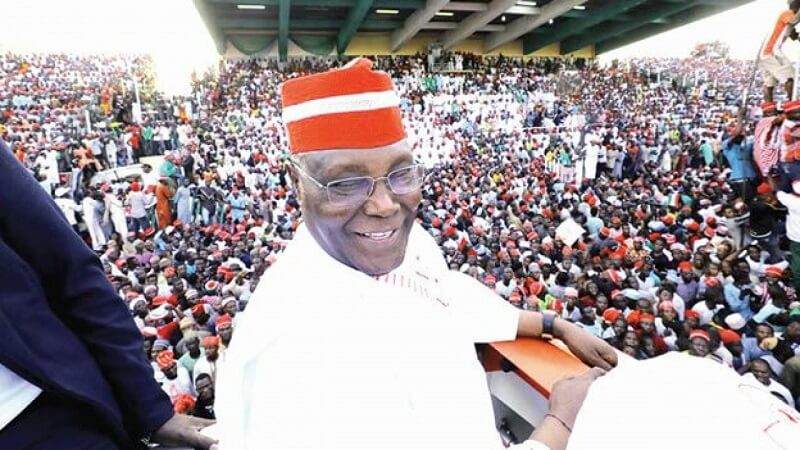Election: Court To Hear Suit Challenging Atiku’s Eligibility As Malami Claims Ex-Vice President Is From Cameroon
A Federal High Court sitting in Abuja has fixed May 4 to hear a suit challenging the nationality of former vice president Atiku Abubakar as well as his eligibility to run for public office in the country.
The suit is claiming that Atiku isineligible to run for a political position in Nigeria on the grounds of the circumstances surrounding his place of birth.
Advertisement
The application was instituted by the Incorporated Trustees of Egalitarian Mission for Africa (EMA) while the Office of the Attorney-General of the Federation, the People’s Democratic Party, the Independent National Electoral Commission, INEC, are part of the court action.
The suit was filed in 2019 but our correspondent learnt on Tuesday that Justice Inyang Ekwo would be hearing the matter on the scheduled date.
Meanwhile, the former vice president, through his counsel, had urged the court to dismiss the application for lacking in merit and for wasting the court’s time.
But the AGF’s counsel, Oladipo Okpeseyi (SAN) , had argued that the odds were against Atiku as far as eligibility was concerned.
Advertisement
He insisted that Atiku was a Cameroonian by birth.
“The first defendant (Atiku) is not qualified to contest to be president of the federal republic of Nigeria.
“The first defendant is not a fit and proper person to be a candidate for election to the office of president of the federal republic of Nigeria.
“The first defendant was born on the 25th of November, 1946 at Jada, at the time in Northern Cameroon. By the plebiscite of 1961, the town of Jada was incorporated into Nigeria.
“The first defendant is a Nigerian by virtue of the 1961 plebiscite, but not a Nigerian by birth. The first defendant’s parents died before the 1961 plebiscite.”
Advertisement
“The facts of his (Atiku’s) birth on the Cameroonian territory to Cameroonian parents remain unchallenged.
“At best, the first defendant can only acquire Nigerian citizenship by the 1961 plebiscite. The citizenship qualifications under Section 26 and 27 of the 1999 Constitution of the Federal Republic of Nigeria (1999), by implication, has limited the first defendant’s privileges or rights and cannot be equal or proportional to the privileges of other citizens who acquire their citizenship status by birth.
“This would include the legal preclusion of the first defendant from contesting for the office of the President of Nigeria,” he argued.



